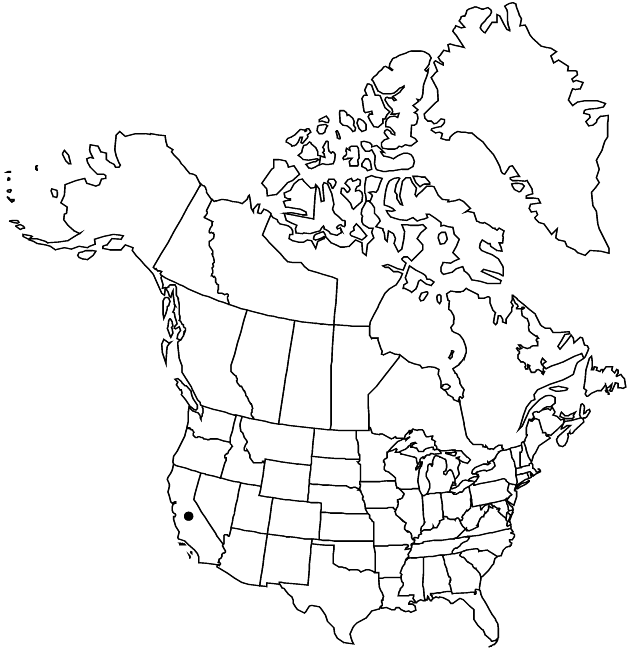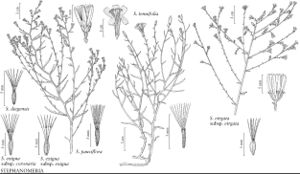Stephanomeria diegensis
Madroño 21: 476, figs. 2,3. 1972.
Annuals, 50–200 cm. Stems single, branches ascending or spreading, glabrous. Leaves withered at flowering (glabrous); basal blades linear to oblanceolate, runcinate, 3–10 cm, margins pinnately lobed; cauline much reduced, bractlike. Heads borne singly or clustered along branches. Peduncles 3–4 mm. Calyculi of reflexed bractlets. Involucres 7–9 mm (sparsely glandular-puberulent). Florets 11–13. Cypselae light tan to brown, 1.9–2.3 mm, faces smooth, slightly bumpy or tuberculate, grooved; pappi of 19–21, white bristles (falling), plumose on distal 80–85%. 2n = 16.
Phenology: Flowering Aug–Nov.
Habitat: Open, pioneer sites such as old clearings, sand dunes, coastal sage communities, chaparral openings, and sandy roadside embankments
Elevation: 20–600 m
Distribution

Calif., Mexico (Baja California)
Discussion
The morphologic characteristics of Stephanomeria diegensis are a combination of those of S. exigua and S. virgata, and the species is thought to have evolved from genetic segregates of their hybridization (L. D. Gottlieb 1971; G. P. Gallez and Gottlieb 1982).
Selected References
None.
Lower Taxa
"fine" is not a number.
